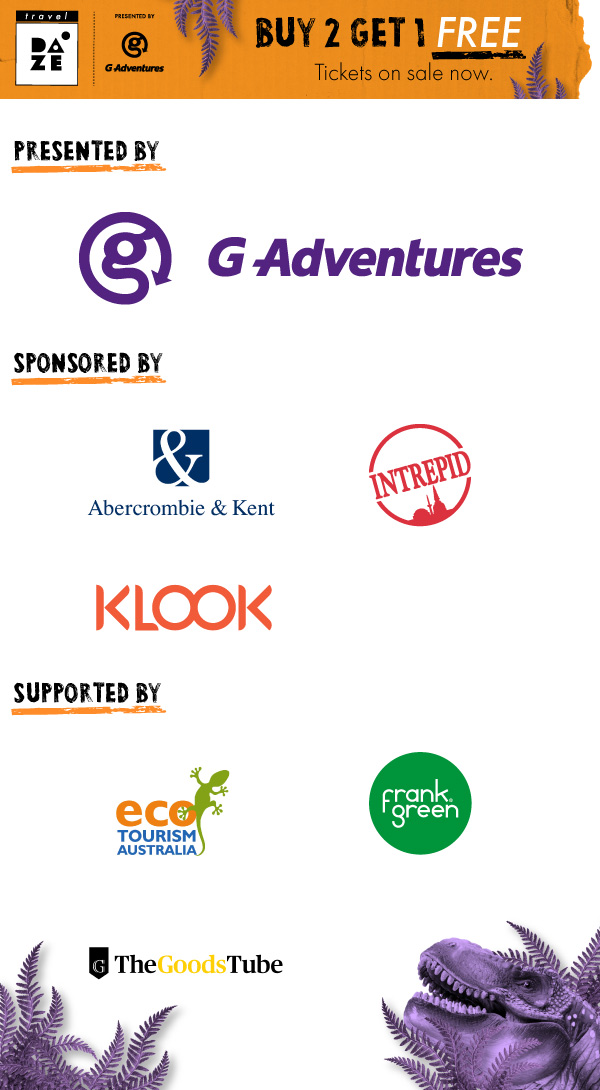CAPA 2019: experts discuss the future of travel in the Millennial economy

At CAPA 2019, an expert panel discussed the future of corporate travel in “the Millennial era of Airbnb and Uber Eats”.
During a four-pronged discussion between big names from Booking.com, Hyatt, Blackmores and BP, Simone Gibbs (indirect category manager Blackmores) asked the following question:
“What’s our incentive to book through the traditional route to go to a hotel?”
It came after a discussion about the future of corporate travel in the millennial economy, where corporate rentals are favoured to hotel stays and room service has been usurped by online food delivery companies.
The panellists agreed that hotels need to embrace non-traditional frameworks to survive.
The panel took place during the first day of CAPA 2019 Australia Pacific Aviation & Corporate Travel Summit, which opened on Wednesday morning with an address by CAPA chairman Peter Harbison and an update from Qantas CEO Alan Joyce.
Matthew Talbot, director of sales and marketing, Hyatt Regency added there are some destinations where a fully dynamic model “makes sense” for negotiations with corporate organisations and travel management companies (TMCs).
In others, like Sydney, he said a “static model still has its place” in allowing corporates to engage and know a ceiling rate and last room availability (LRA).
“The world is moving … into a dynamic place,” Talbot said. “I think that eventually our hotel and hotels around the world will be fully dynamic with every channel that they have.”
These include engagements with online travel agencies (OTAs), corporate organisations or TMCs.
One of the challenges the panel identified for the future will be to engage customers that favour ‘no frills’ packages – a demographic that Millennials particularly go for, according to the panel – and keeping track of corporate travel habits.
Talbot went so far as to say that as many as 95 per cent of Hyatt Regency’s corporates negotiate on a room-only, lowest-rate basis.
Early in the panel discussion, Gibbs spoke of the need to move away from the traditional ‘request for proposal’ (RFP) and a need for further online solutions, like online inventories and travel habit data sharing.
“I think we need to look at more dynamic, online solutions than the traditional RFP,” she said.
Karina Harris, regional head for indirect procurement across the Asia Pacific at BP, echoed this point but said that there was a place for preferred suppliers in key markets and base rates, to suit the changing dynamics of corporate travellers.
BP has three static connections for fixed rates in Australia, according to Harris.
“What [BP is] finding is that the dynamic of our travellers is changing,” she said.
Harris went on to say that maturing younger generations were playing a large part in changing this dynamic.
“Traditionally we would have gone out for Wi-Fi, breakfast, etcetera, but now we’ve found as Gen Y and millennials grow out and enter our workforce … they don’t want to stay in their hotels … they want to drop their bags and enter the city that they’re in.”
Gibbs later posed the question of how Hyatt Regency and Booking.com were ensuring sustainable and ethical practices.
Stewart Jones, regional director of strategic partnerships for APAC at Booking.com, responded by directing Gibbs to the OTA’s corporate social responsibility program, ‘Booking.com Cares’.
Talbot told audience members about Hyatt Regency’s partnership with the City of Sydney for the Sustainable Destination Partnership, a program that includes more than 30 accommodation and entertainment companies.
As a part of the Sustainable Destination Partnership, the NSW Government said members have agreed to work together to source energy from renewables, divert waste from landfill and reduce potable water.
According to NSW Tourism Accommodation – the NSW Government’s peak industry body – the program identifies ways businesses can go greener through environmental ratings, increased use of renewable energy, reduced water use and improved waste management and recycling.
Speaking of sustainability…
Travel Weekly’s upcoming conference Travel DAZE is about creating the most sustainable travel businesses we’ve ever seen.
This year, the event will be held on Wednesday 28 August at the NSW Teachers Federation in Sydney We’ve also come up with a nice little deal for Travel DAZE so that your whole squad can come along!
If you buy two tickets to the only TED-style talks for travel, you’ll get one for FREE!
To secure your spot at the travel industry’s most disruptive conference and take advantage of this awesome offer, click HERE.

Email the Travel Weekly team at traveldesk@travelweekly.com.au
alan joyce blackmores booking.com BP capa CAPA 2019 Hyatt Regency Travel DAZELatest News

Australia fails to make top 10 destination list for American travellers
Australia's top cities have failed to make the grade with American travellers this northern summer, with no local city in the top.

APT Launches 2025 Asia Adventures
APT has launched its Asia Adventures for 2025, including new luxury holidays in India, Sri Lanka and Japan. Five new tours lead guests to the highlights of India, including a seven-night cruise along the rarely travelled Lower Ganges aboard the Ganges Voyager. Further south, Sri Lanka’s greatest destinations are revealed on a new 15-day Land […]

ANZAC Battlefield travel on the 2025 bucketlist
As Anzac Day dawns, agents prepare for a surge in bookings for the 110th anniversary of the Anzac Cove landings.

Former Channel 9 Getaway host and founder of TRIBE Jules Lund to speak at Travel DAZE
From blond-tipped travel reporter to Travel DAZE speaker, Jules Lund cuts through the BS.

HX’s Roald Amundsen finds aliens in the Antarctic
Forget whales, HX's MS Roald Amundsen captures aliens in the Antarctic - and they're not pretty.

Mayhem in France as 70% of flights face cancellation
I mean it wouldn't be France if there wasn't at least one strike.

Etihad Airways launches double-decker service with world’s only in-air three-room suite
We imagine falling asleep in the three-room suite is superior to falling asleep on your neighbour's shoulder.

Norwegian Cruise Line launches 2024 Europe travel season
Europe certainly has a lot of ports. Its time for Australia to up its game.

“The power of travel for positive change” – Intrepid’s Jenny Gray hails controversial all-women Saudi Arabia trip
There is an awful lot to love about this tour from Intrepid. Where do we sign up?

Princess names the Sun, unveils Sanctuary Collection + Star Princess to Alaska in ’26
A huge bottle of Veuve was smashed into the side of the ship to make things official. So no, we couldn't snag a glass.

Collette special offers across peak northern summer season
If you are craving a trip to Europe then grab this deal with both of your grubby hands.

Air India and All Nippon codeshare between the two countries
Here at TW we agreed that the photo would have worked better if they had swapped planes.

A&K offers minimum 18 weeks paid parental leave
Contrary to what the photo suggests this benefit is only applicable for humans. Back to work Mrs Jumbo.

NH Hotel Group rebrands as Minor Hotels Europe & Americas
Hang around the bends of the hotels. We imagine they will be full of a lot of branded content.

Scenic Eclipse II – the business of creating unforgettable life-changing memories
These cruise brothers from another mother offer a view of cruising on Scenic Eclipse II that is poles apart.

MSC builds new hospital ship with Mercy Ships
If you want to read a story that puts a smile on your face then this is the one for you.

“I peed on myself watching this” – Social media users squirm at Royal Caribbean’s Harmony of The Seas 55ft dive video
TW is not responsible for any involuntary actions your body might have after watching this video.

FLIGHT REVIEW: Qantas Boeing 787 Dreamliner business class
The real bonus is you're unlikely to be around screaming children. Hoorah!

Traveltek offers travel agents new rapid deploy cruise website
As always, if you have any issue with the platform, just turn it off and on again.

Experience whale watching & classical music at the Australian Festival of Chamber Music in Townsville
Disappointedly, the whales do not start singing in tune with the orchestra. Opportunity missed.

Fond, very Fond. London hotel famed for James Bond link adds ‘Classic Comforts’ lunch menu
James Bond author Ian Fleming was so fond if this hotel, it inspired the legendary phrase ‘shaken, not stirred’.

What sets Eclipse Travel apart with Africa expert Hilary Dubyk: Travel Weekly TV
If you want to know more about Africa, then Hilary Dubyk is your person.

Surge in Australians visiting Japan
Feel like all of your friends have just returned from Europe? Now it's Japan.

Seabourn announces Western Kimberley Traditional Owners as Godparents of Seabourn Pursuit
Seabourn has named Western Kimberley Traditional Owners, the Wunambal Gaambera, as Godparents of the ultra-luxury purpose-built Seabourn Pursuit. It is the first cruise line to appoint Traditional Owners as godparents of a ship. Seabourn Pursuit embarks on its inaugural season in the Kimberley region this June. The naming ceremony will take place on Seabourn Pursuit’s […]

Sydney named 17th best place to work remotely
If you struggle to get a seat within Sydney's coffee shops, you now know why.

W Melbourne grows sales team
We appreciate the thought that has gone into this team photo.

Cunard welcomes new ship Queen Anne
This might be the most impressive ship handover in ship handover history.

Intrepid Travel appoints Yvette Thompson as general manager sales & marketing ANZ
It isn't end-of-day Monday and Yvette Thompson has already nabbed herself an impressive promotion.

Anna Fawcett re-joins Global Touring in newly-created APAC role
With such an impressive CV, Global Touring is no doubt thrilled to have Fawcett back.

“We know our response has been far from perfect” – Emirates’ open letter following Dubai flooding
If you also need to write an apology letter, then this is a pretty good template.

Malolo Island Resort opens brand new Spa
Fiji’s Malolo Island has added another string to its bow – opening its $1.3 million day spa on Thursday, 18th April 2024. (Lead Image: matriarch Rosie Whitton with spa staff) Located at the edge of the resort’s luscious patch of tropical rainforest, the new “Leilani’s Spa” adds another level of elevated experiences to Malolo’s already […]

Virgin Australia’s HILARIOUS second instalment of the ‘Bring on Wonderful’ campaign
We don't use the word 'hilarious' lightly, but this is worthy of the title.

Visit Sunshine Coast reveals new brand identity
If you were looking for another reason to visit the Sunshine Coast then this is it.

Sofitel launches brand campaign starring Sex Education’s Gillian Anderson
We can confirm the content of this video is less spicy than Sex Education.

Holland America Line gives agents the chance to visit Alaska on 11-day Famil
If you've ever wanted to see a Polar Bear (and who doesn't?), now is your time.

More than 65 luxury agents gather in Sydney for Best of the Best dinner
This looks like a fabulous do. We imagine there may be a few (or maybe 65) sore heads this morning!
